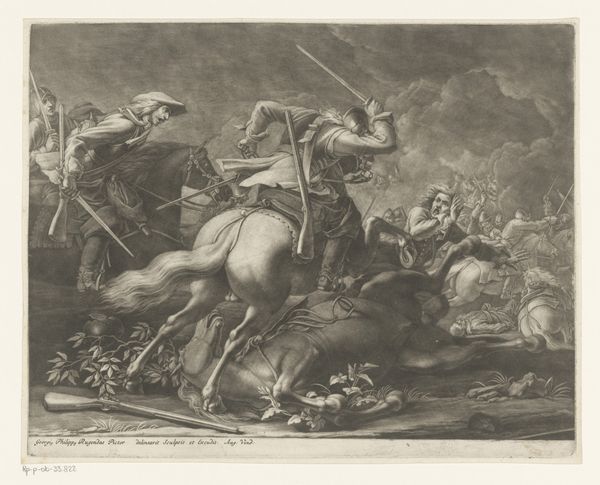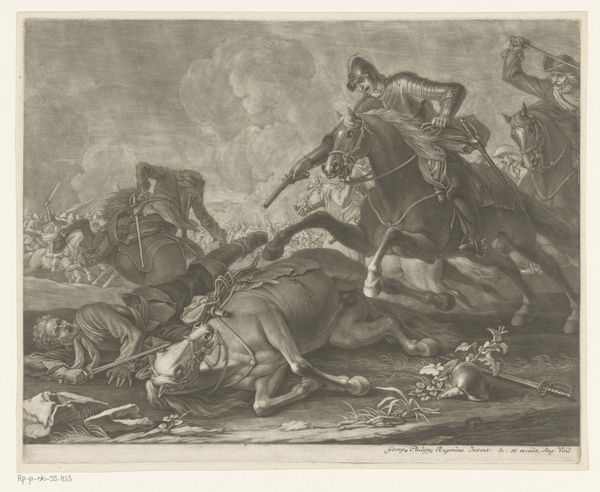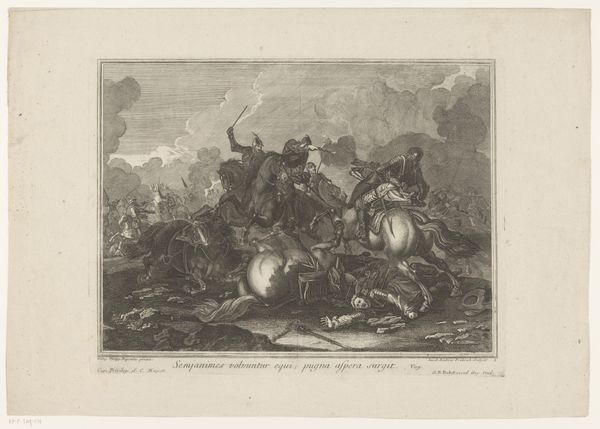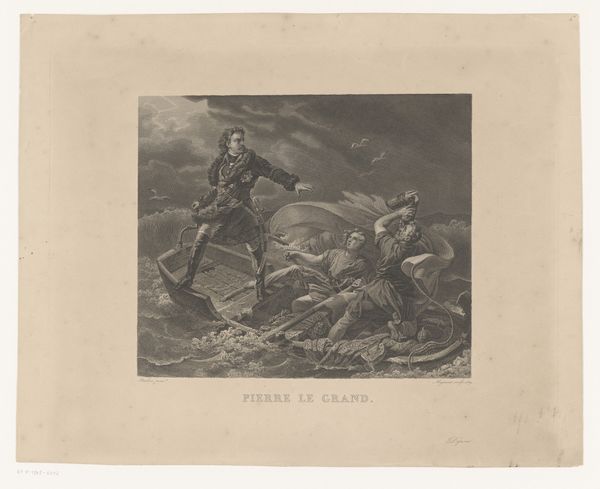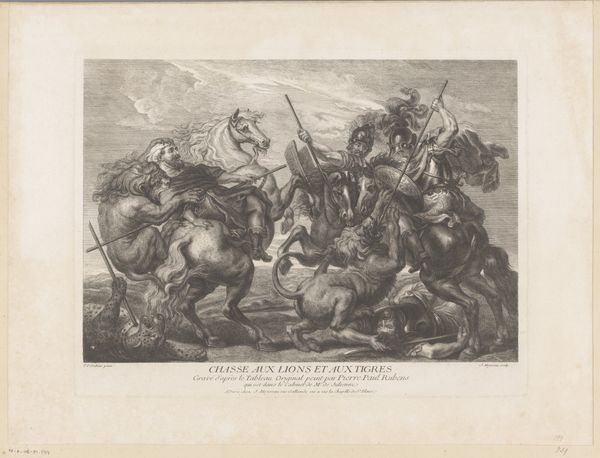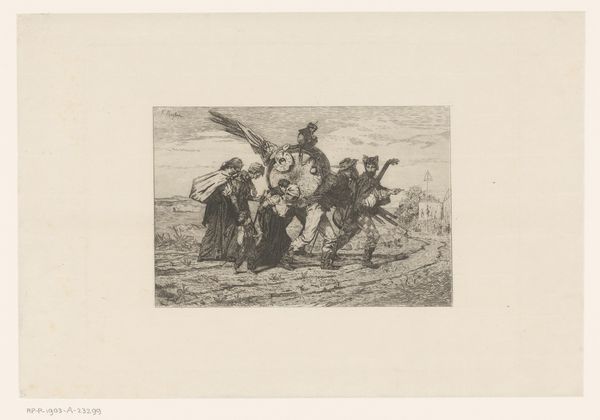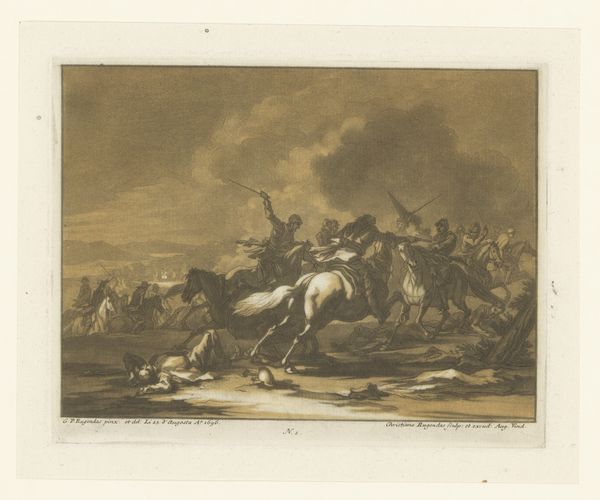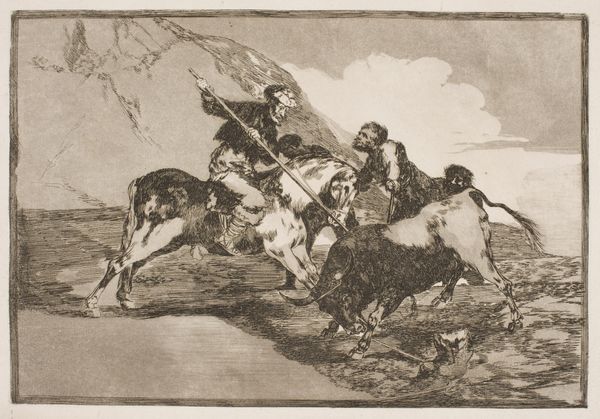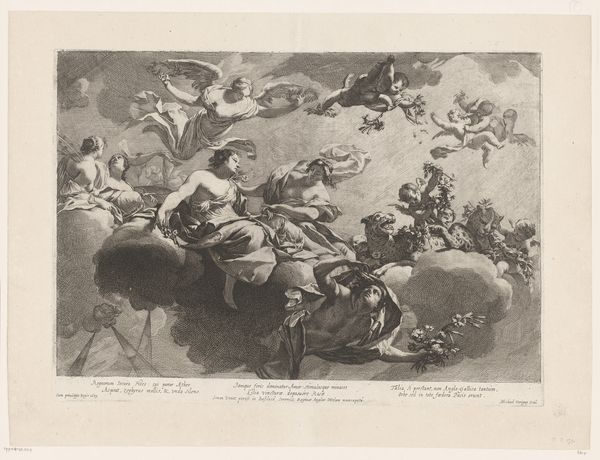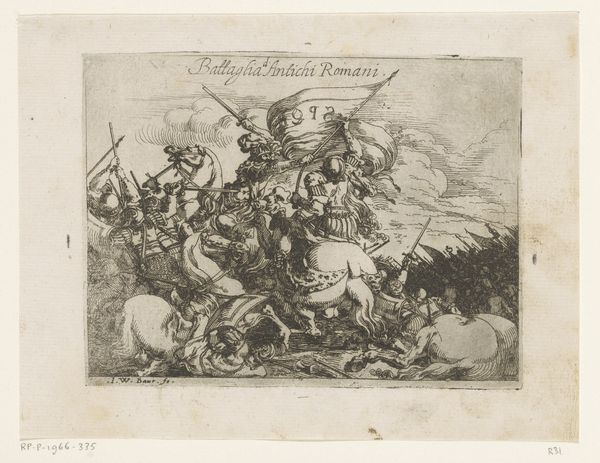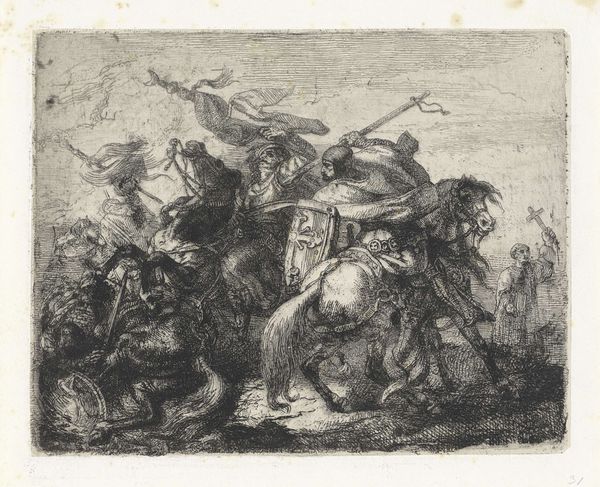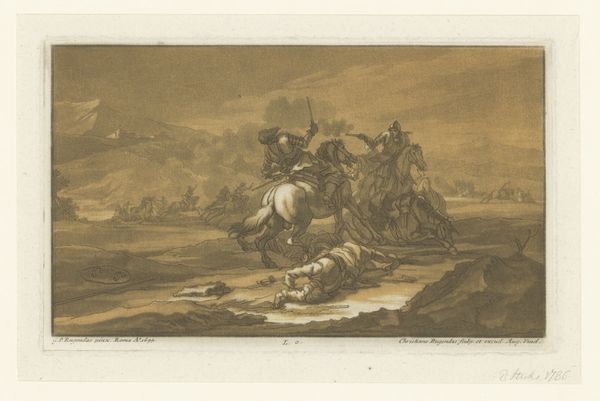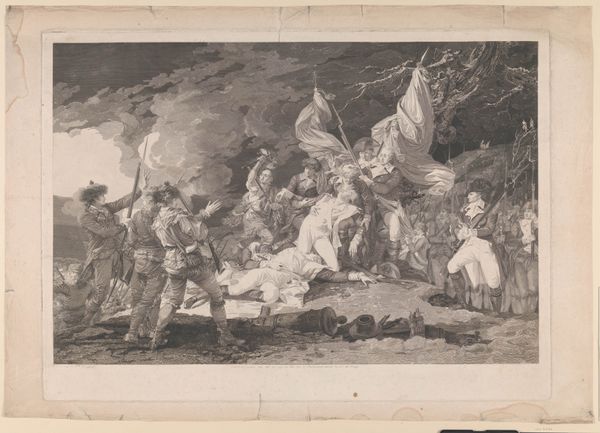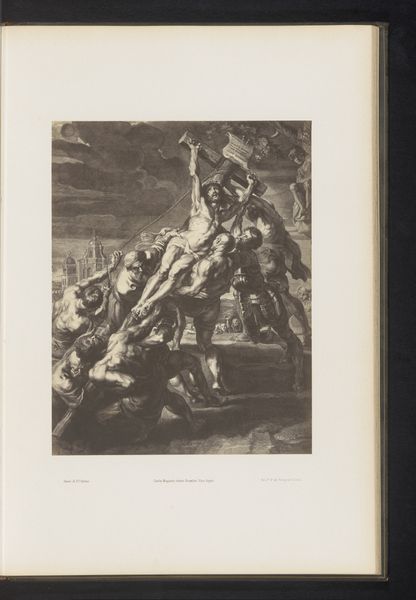
#
pencil drawn
#
light pencil work
#
wedding photograph
#
photo restoration
#
wedding photography
#
pencil sketch
#
old engraving style
#
pencil drawing
#
old-timey
#
19th century
Dimensions: height 385 mm, width 471 mm
Copyright: Rijks Museum: Open Domain
Curator: Looking at this pencil sketch, I am immediately struck by its chaotic energy. The composition, full of rearing horses and clashing figures, is visually overwhelming. Editor: Indeed, this is "Ruiters in strijd om een vlag," or "Horsemen Fighting for a Flag," attributed to Horazio Gaigher and created sometime between 1880 and 1909. This image allows us to explore the dynamics of power and representation within conflict itself. Consider how the struggle for a single flag becomes a microcosm of larger ideological battles. Curator: I'm drawn to how the artist depicts violence. Notice the fallen horses and the struggling riders – it feels raw and immediate, yet romanticized. The question that emerges is how the narrative is presented. Who decides who are the heroes? Editor: That's where a critical, historical analysis becomes invaluable. These images rarely offer a neutral perspective; they're often commissioned or created within specific political or social contexts. The presentation of warfare can become propaganda. Curator: Absolutely. Thinking about contemporary power structures, one must ask how imagery still shapes perceptions of conflict. Whose perspectives are centered? Who is silenced? Editor: Precisely. The dominance of a victor's narrative is ever-present, shaping our collective memory of historical and contemporary conflicts. The sketch gives an image of heroism while other participants end up in the dark pages of history. Curator: This is precisely why interrogating the power structures that allow this visual history to prevail and inform modern power politics are important. Editor: Reflecting on the composition and history of this work has made me realize how it captures the turbulence, as much physical as ideological. Curator: And for me, it highlights the crucial need for an interdisciplinary dialogue between art, history, and modern theory so we can unveil underlying issues of identity, gender and racial power dynamics that persist.
Comments
No comments
Be the first to comment and join the conversation on the ultimate creative platform.
